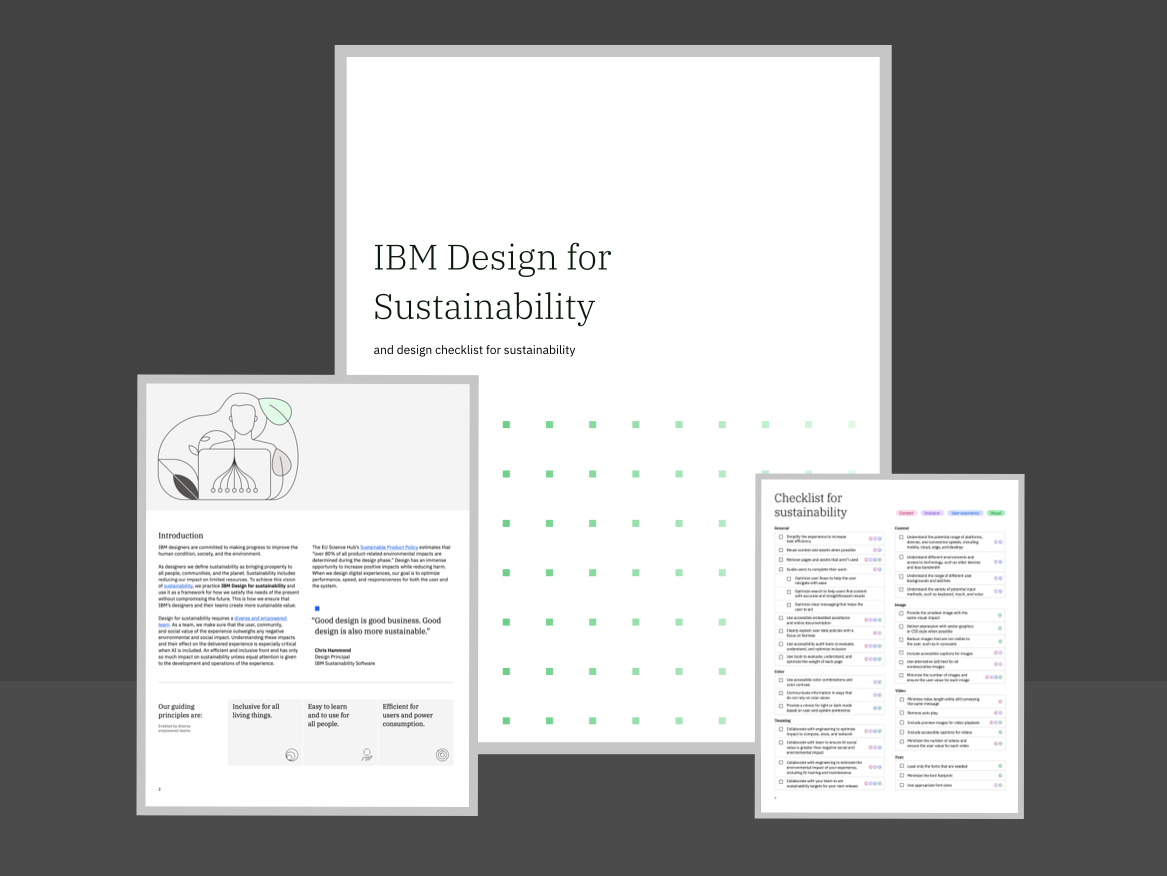IBM Design for sustainability
Our purpose is to be the catalyst that makes the world work better.
IBM Design for sustainability articulates the collective viewpoint of IBM Designers about how we can acquire and apply sustainability consciousness.
IBM Design definition of sustainability
As IBM Designers, we define sustainability as bringing prosperity to all people, communities, and the planet, both now and in the future. The positive impact of sustainability includes all living things, not just humans. It also includes reducing our impact on the limited resources of our planet.
Sustainability consciousness
We make design choices every day, always in pursuit of best meeting our users’ needs. We consider the impact of those choices on society and on our planet, and our goal is that sustainability considerations are part of every design choice that we make.
Envisioning a better tomorrow
We believe in optimism and are optimistic about a more sustainable future. We published our first version of IBM Design for sustainability to help our IBM Designers develop their sustainability consciousness. This first version is a prototype and we expect to iterate on it as our sustainability consciousness expands.
Chris Hammond
Design Principal
IBM Sustainability Software
Our principles
Enabled by diverse empowered teams.
Our guiding principles are that sustainability is:
Inclusive for all
living things.
Have we understood the full impact of our designed experience for both people and other living things?
Our experiences go beyond just being human-centered to encompass good stewardship of our planet’s limited resources for all living things, now and in the future.
Easy to learn and to use
for all people.
Have we prioritized the usability of our experiences regardless of the user’s ability or means?
Our experiences deliver ease-of-use for everyone, both the first time and every time.
Efficient for users and
power consumption.
Have we collaborated with our team to optimize systems to reduce and increase user efficiency?
Our experiences are simplified to be more inclusive, more efficient, and require fewer resources.
